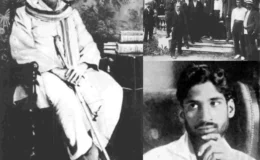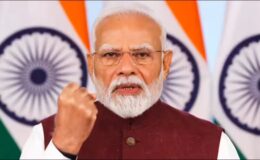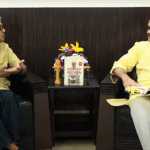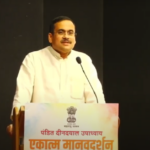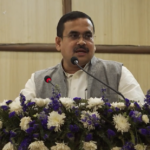Intolerance Against Modi, RSS Reeks of Class Hatred
- By : Anirban Ganguly
- Category : Articles
Interestingly in 2007, when the self-proclaimed proletarian government of West Bengal fired on farmers who were just trying to protect their lands against seizure in Nandigram and killed more than a dozen—though the report was that many more were killed—most intellectuals in the state remained silent and did not write to the then President of India complaining of the rise of fascism or intolerance in the country. The CP(M)-led Left Front was at that time a constituent of the UPA-I government in Delhi, and obviously most looked the other way.
Some among the intellectuals who saw the occasion as a great opportunity to switch sides and to align themselves with the rising political formation on the firmament, the Trinamool Congress—the fact that these intellectuals could switch sides so easily was also indicative of their migratory habits in any case—made some noise and undertook some perfunctory marches. In the mutually forgiving club, the then Chief Minister, Buddhadeb Bhattacharya, and his other colleagues in the politburo were forgiven and never shunned.
No signature campaign was undertaken against their orders to shoot and kill farmers; no Western university shut their doors on them or withdrew invitations to them on the pretext that India was becoming intolerant. Like comrade Jyoti Basu, whose acts of intolerance were often forgiven and forgotten just because he belonged to the privileged Harold Laskian club, these homegrown comrades have always seen their intolerance and murderous propensities forgiven, simply because they belong to elitist circles and more importantly because they incubated their ideas in the hallowed portals of Ivy League universities.
The CP(M) politburo, which routinely passes homilies and propaganda statements on the deteriorating state of tolerance in the country and comes out in support of every sundry activist who is involved in demonising the RSS, BJP and Narendra Modi, was itself complicit in that massacre and bloodshed of innocent farmers. For historians—who have been lifelong cardholders of the communists parties—thus, it would be worthwhile to revise the statement that likened the RSS to the ISIS. The RSS never ever in its history shot at and killed people, never instigated people to do so, it never set up gulags where revisionism could be practised and did not send people to concentration camps in sub-zero temperatures—the communists in India and in the history of the world have done all of these and much more and, therefore, are more similar and in tune with the ISIS ideology and its methods.
These same Stalinist apologists kept silent when Taslima Nasreen was hounded out of Kolkata in the winter of 2007 by the CP(M)-led Left front regime just because Islamist lumpens felt she had no place in Kolkata. For those who recall that day, entire stretches of the city were given over to lumpens, who also doubled up as communist cadres and mayhem was unleashed terrorising the ordinary people. These same Maoist intellectuals kept silent when in March 2014, an MP of the state’s ruling party organised a massive rally in support of Bangladeshi war criminals and called for putting to death those holding war crimes in Bangladesh. The facile pens of these intellectuals had gone silent then as it had when a series of murders of RSS and BJP functionaries took place in Tamil Nadu between 2012 and 2014 or in CP(M)-ruled Kerala when lecturer T J Joseph’s hands were chopped off just because he held views that were different from Islamist radicals.
Thus, the intolerance that these sham intellectuals display against the RSS and Modi is actually a class hatred and disdain. The return of awards and the accusations of intolerance is simply an expression of that hatred—nothing more and nothing less.

